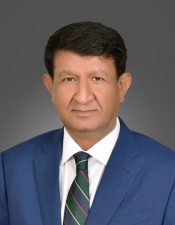By Bala Ibrahim
At last, Kano state government has admitted the reported cases of mass deaths in the state. Also, in response to public agitations, the government is embarking on verbal autopsy, to ascertain the causes of the deaths, in order to enable it take all measures necessary to bring the problem to an end. Good, very good, Kano state. It’s better late than never.
According to a statement delivered by the Commissioner of Information, Muhammad Garba, Governor Abdullahi Umar Ganduje has directed the state Ministry of Health to conduct a thorough investigation into the immediate and remote causes of the deaths.
This is indeed a good step taken in the right direction, albeit belatedly. By admitting to investigate, the government is acknowledging the problem and also admitting that it was initially economic with the truth, when it denied the magnitude of the deaths, and accused a segment of the media, of trading in fake news. Half the truth is now revealing the whole lie.
While applauding the government for waking up, and rising to the occasion through verbal autopsy, a section of the government’s statement is still displeasing, viz: “Reports from the State Ministry of Health has shown that most of the deaths were caused by complications arising from hypertension, diabetes, meningitis and acute malaria, and Governor Abdullahi Umar Ganduje is earnestly waiting for the final report from the State Ministry of Health so as to take necessary action”
If indeed government’s findings have pointed accusing fingers at the above complications, why is the government waiting for the final report before it starts addressing those problems? Do we have to set up another committee to stampede the other committee to submit it’s report? Do we have to wait for a final report before taking a decision? What guarantee is there, that the need would not arise, for the setting up of another committee, to review the report of the previous committee, or committees? By which time, more than half the people of the state are gone.
If there is a preliminary report, why not take preliminary action, and save lives, pending the arrival of the final report for final action? More so, when the disease is not giving out any preliminary notice, and the people are dying daily.
Although as Muslims, we believe in predestination, the doctrine that Allah has measured out the span of every person’s life, but may be, only may be, had the government acted fast, based on the preliminary report before it, the pain suffered by some of the dead, might have been minimized.
Most painful is the fact that everything is being done by the same ministry of health, under an inexperienced commissioner that was brought by an inexperienced colleague, whose greatest qualification is the privilege of being the daughter of the governor. For a state like Kano, with more than enough experienced, tested and trusted doctors, this is a big slap on the face. Nepotism should not be played on the high way of public safety.
If we look at the story of China, although it had acted fast, the situation would have been worse, had the authorities not bypassed the protocols of setting up committees and waiting for reports.
In December 2019, the authorities in China, after noticing some deaths and the circulation of a mysterious viral pneumonia in Wuhan, quickly launched an investigation into the cases. China reported the cases to the World Health Organization, WHO, on the 31st of December. But WHO experts were only abled to visit China and investigate the outbreak on 10 February, by which time the country had more than 40,000 cases.
Without waiting for the approval of the WHO, and without wasting time on reports, China commenced action on the likely cause and quickly found it to be Covid-19.
If china had waited for reports after reports on the initial cause of deaths in Wuhan, coronavirus would have wiped out the country or even the world before we know it. Today, while the world is locking down, China is opening up. And it was the epicenter.
“In an epidemic, one has to work with rumour and suspicion, and any observation of people should be taken seriously and also investigated scientifically,”-Dr Usman Bashir of Aminu Kano Teaching Hospital (AKTH).
And this is exactly the ambition of planning, especially when planning for public salvation. Leaders must take public comments seriously, even if they are rumours. They must think ahead, look ahead and see the future, through the prism of today. The future depends on what we do in the present.
When a disease occurs in greater numbers than expected in a community, it is considered an outbreak. Using the memories of the past, especially the experiences in other epidemics like meningitis, cholera and recently Lassa fever, Kano is competent to draw a roadmap that can bail out the whole of Nigeria.
But that is possible only, when square pegs are put in square holes. Anything to the contrary, would lead to telling a half truth, which is equal to a whole lie.




